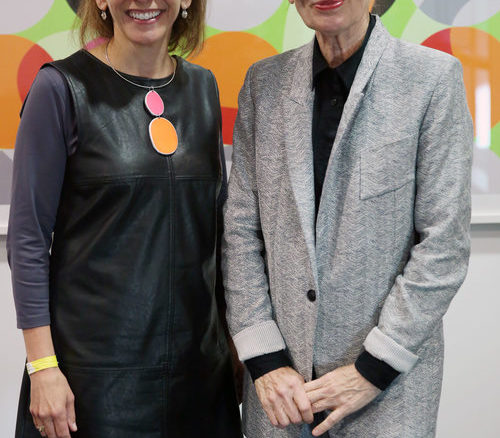
It was a packed house recently when the internationally renowned experimental composer and performance artist Laurie Anderson spoke at the Patricia &
Phillip Frost Art Museum at FIU. Anderson spoke as part of the Steven & Dorothea Green Critics’ Lecture Series.
The room broke out in rousing applause as Anderson, with her hair in a small bun atop her head and dressed in loose fighting jacket and pants, approached
the podium.
“It was a great honor and privilege for me to have the opportunity to introduce Laurie Anderson as the Steven and Dorothea Green Critics’ lecturer. I don’t view her so much as symbol as a paragon of the unfettered creative mind,” said Museum
Director Dr. Jordana Pomeroy.
She kicked off her talk, in true Anderson form, by speaking about the election, immediately referencing President Donald Trump’s plan to build the
wall along the Mexico border. She compared it to a play by Ancient Greek playwright Aristophanes, “The Birds,” first performed in 414 BC, which
also deals with building a wall but in a more metaphoric sense.
In her usual soft spoken fashion she delivered story after story about her life, including the time when she taught Egyptian architecture to night
school students, worked for NASA as their artist in residence and suffered a traumatic experience during her childhood when she was hospitalized.
“I taught twice a week for 10 years and spent most of the time actually making up the lessons I taught, totally improvising,” Anderson said. “I quit
a month before I was fired.”
She then was called by NASA and asked if she would be their artist in residence. She recalled how for the initial call, she hung up on the caller,
thinking it was a joke. When they quickly dialed back, she realized they were serious. They asked her because she is a multi-media artist — she
accepted the gig.
Her years at NASA were spent visiting NASA stations, roaming around the world. It was then she realized artists and scientists actually have a lot
in common. “Like artists, scientists really don’t know when they’re done and what they want,” she said.
When her position at NASA was eliminated, when the budget was reviewed and they decided they needed to cut her $20,000 a year position, she became
the last and ultimately only resident artist there.
“After my stint with NASA I realized that the White House, Supreme Court and Department of Defense are all places that should have an artist in residence,”
said Anderson, to which the audience erupted in laughter.
Museum Director Dr. Jordana Pomeroy on left with Laurie
Anderson.
Injecting her dry humor delivery throughout the talk, she spoke delicately but with a bit of comedy on breaking her back attempting to dive into a
pool when she was 12 years old. That led to a two-month hospitalization when she was in traction, surrounded by burn victims. She detailed how
they were essentially in hanging positions during which they were regularly rotated so their burns if possible, would heal.
At such a young age, she was not fully aware of the severity of fate of the burn victims, but as she grew older, the memories came flooding back. It
was evident from her storytelling those memories haunt her to this day.
Musical instruments have always been a large part of Anderson’s performances and she’s credited with inventing several of her own. At one point in
the lecture, she demonstrated by inserting a pillow speaker in her mouth, and when she began to sing was able to create the sound of what resembled
a violin.
She followed that saying “for some stories, you’re creating your own identity,” which led to her recollection of stories about her Swedish grandfather
and how her parents eventually told her that all his stories were made up, fabrications.
Knowing audience members would recognize it, she delved into one of her most recent projects “Heart of a Dog,” a concert she performed in New York
City tailor-made for pooches. She was commissioned to create the piece by a French company who she recalled “never checked in on the progress of
the project.” So she finished it up merely as a hobby.
Incorporated into the visual images that accompanied the concert are the 11×14 charcoal drawings she did of her dog. “My dog was going blind and actually
learned to play the piano and I am certain that the music saved her life,” she said.
Read about Laurie Anderson’s extensive body of work, including specifics about “Heart of a Dog” and her letter to John F. Kennedy when she was 12 years
old, on her website at http://www.laurieanderson.com/

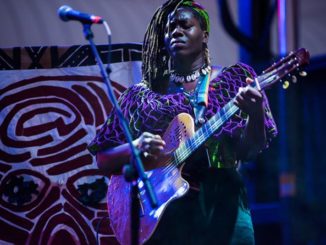
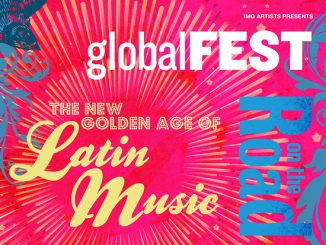
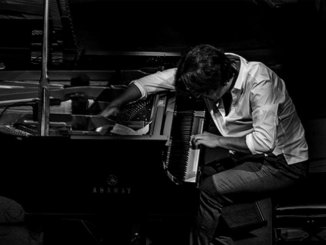
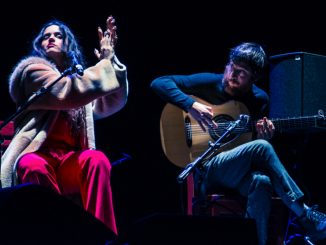
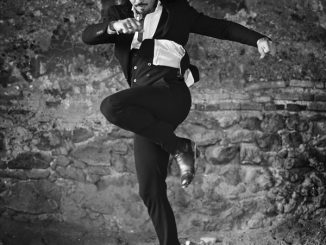
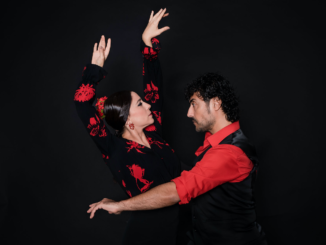
Be the first to comment